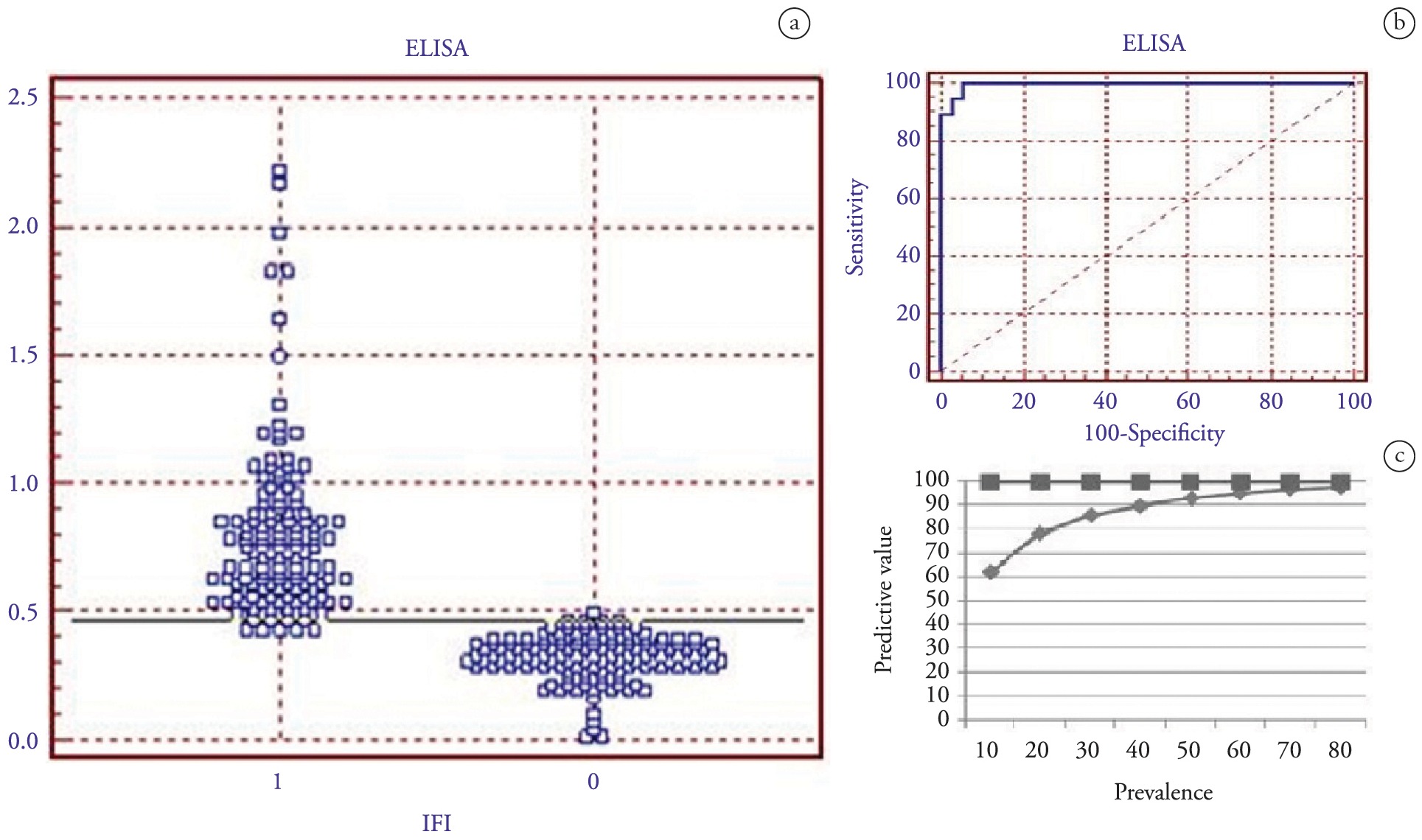Neosporosis is a disease caused by the protozoon Neospora caninum that leads to significant economic losses in many countries. In the present study, we report on use of the recombinant protein NcSRS2 of N. caninum expressed in Pichia pastoris in an indirect immunoenzymatic assay (ELISA) for diagnosing neosporosis infection in sheep and dogs. We observed that the ELISA test yielded specificity of 94.5% and sensitivity of 100% for sheep and specificity of 93.3% and sensitivity of 100% for dogs. We observed that the sensitivity was higher than shown by the indirect fluorescent antibody test, and this was confirmed by means of Western blot. The results from this study suggest that the recombinant protein expressed in P. pastoris is a suitable antigen for use in immunodiagnosis to detect N. caninum in two important species exposed to this parasitosis.
Neospora caninum ; Pichia pastoris ; NcSRS2; ELISA

 Thumbnail
Thumbnail
 Thumbnail
Thumbnail
 Thumbnail
Thumbnail


